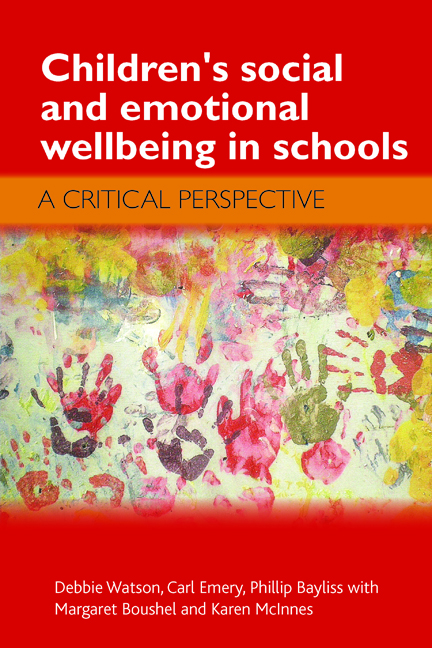Chapter 9 - Opportunities for playful expressions of wellbeing
Published online by Cambridge University Press: 01 September 2022
Summary
Introduction
This chapter considers the links between wellbeing, children's development and education in an early years context from a perspective of playfulness. It challenges traditional ideas of the value of play from an adult perspective and the consequential benefits play and play-based curricula are claimed to have for young children (which include claims relating to wellbeing and learning). Playfulness as a disposition and an attitude is offered as a more nuanced way of understanding how the activity of playing could be argued to underpin children's reported social and emotional wellbeing experiences. The chapter argues against objectifying the observable act of playing (and definitional or categorical accounts of what play is), instead arguing for the importance of the individual child's experiences as a player. This is a challenge to the long-held assumption that all play is of value and meaningful to children. The foregrounding of children's preferences and experiences is in keeping with the motivation to bring children's voices to visibility in Chapter 7. In a wellbeing context, this also offers a challenge that human flourishing is concerned with ‘enjoyable feelings’ or ‘enjoyable activities’ (White, 2011, p 44) and that both need to be present. A focus on playfulness helps to escape the adult-defined presumption that play activities are always enjoyable and synthesises the need for both enjoyment in respect of children's feelings and of the activity itself.
Recent research underpinned by my PhD studies of playfulness will be presented to show that this alternative construct allows for opportunities for playful expressions of wellbeing. This builds on my research, and as an individual author this chapter will adopt the first-person singular pronoun.
Wellbeing and play
Play is a universal activity shared by humans and animals and is viewed as a vital and necessary aspect of life (Piers and Landau, 1980; Burghardt, 2005). Play is a fundamental human right for all children as articulated in Article 31 of the United Nations Convention on the Rights of the Child (UNCRC) (UN, 1990) and is seen as an essential mode of being for children (International Play Association, 2010). It was included within the Every Child Matters framework under the outcome ‘Enjoy and Achieve’ where it was stated that ‘children should achieve personal and social development and enjoy recreation’ (DfES, 2004a, p 9).
- Type
- Chapter
- Information
- Children's Social and Emotional Wellbeing in SchoolsA Critical Perspective, pp. 143 - 156Publisher: Bristol University PressPrint publication year: 2012



